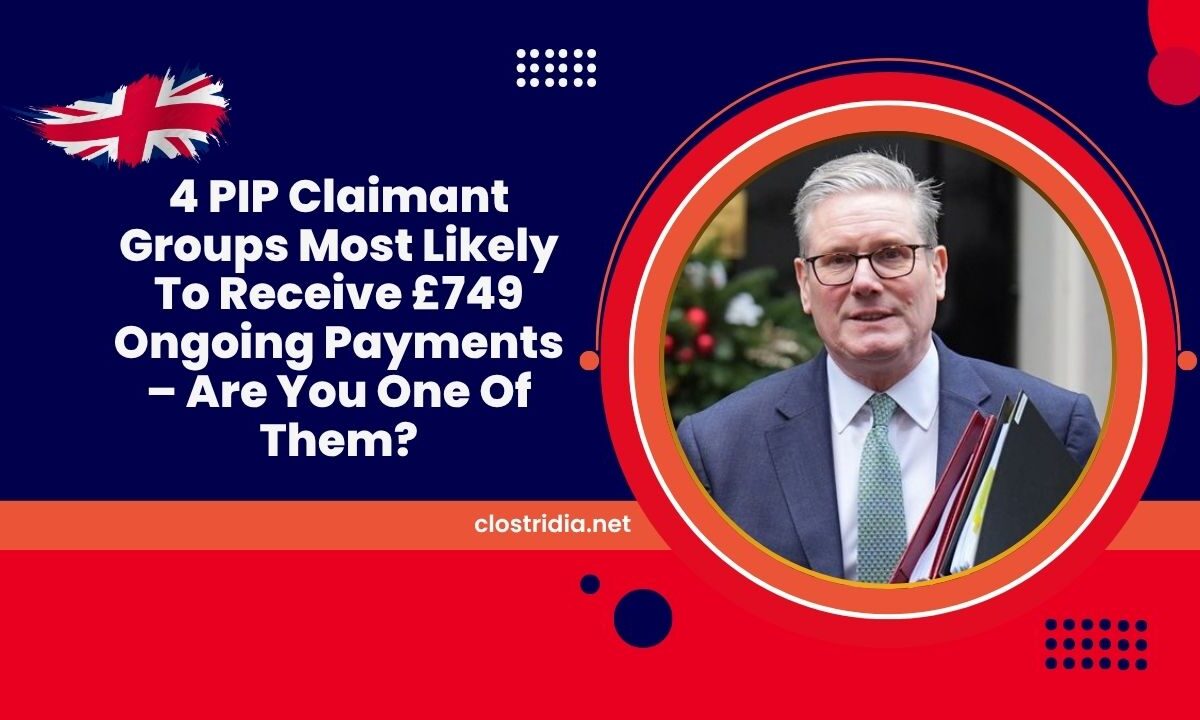In a major update from the Department for Work and Pensions (DWP), changes to the Personal Independence Payment (PIP) scheme are on the horizon, with new eligibility rules set to begin in November 2026.
However, millions of claimants in England and Wales are already receiving ongoing PIP awards, and data reveals which groups are most likely to qualify for the highest payments — up to £749 every four weeks.
Currently, over 1.5 million Personal Independence Payment recipients have been awarded long-term or ongoing support, a figure representing 41% of all claimants.
Here’s a breakdown of the four key groups most likely to receive ongoing awards with the maximum financial benefit.
What Is an Ongoing PIP Award?
An ongoing award means claimants continue to receive support with minimal or “light touch” review, typically:
- At State Pension age
- Under end-of-life provisions
- With stable or worsening conditions
These awards usually avoid face-to-face assessments, making the process easier and less stressful for long-term claimants.
Who Gets the Maximum PIP Payment of £749?
Personal Independence Payment is made up of two components:
- Daily Living (£73.90 standard, £110.40 enhanced)
- Mobility (£29.20 standard, £77.05 enhanced)
A person receiving the enhanced rate of both components gets £187.45 per week, or £749.80 every four weeks, totalling nearly £9,747 per year.
Top 4 PIP Claimant Groups with Ongoing Awards
According to the latest data from January 2025, the following groups have the highest likelihood of receiving ongoing awards:
| Condition | Total Claimants | Ongoing Awards | Percentage |
|---|---|---|---|
| Visual Disease | 58,685 | 34,692 | 59.1% |
| Musculoskeletal (General) | 682,391 | 341,434 | 50.8% |
| Neurological Conditions | 468,113 | 230,412 | 49.2% |
| Musculoskeletal (Regional) | 426,038 | 185,916 | 44.6% |
These groups are most frequently assessed as having long-term, stable needs, qualifying them for longer PIP support durations.
What Are the Eligibility Criteria for PIP in 2025?
To qualify for PIP or Adult Disability Payment (ADP), you must:
- Be aged 16 or over
- Have a health condition or disability that affects daily living or mobility
- Experience difficulties for at least 3 months, expected to last another 9 months
- Be a UK resident for at least 2 of the last 3 years
Your daily activities and mobility will be assessed based on how your condition affects:
- Eating, dressing, bathing, toileting
- Mobility and navigation
- Communication, decision-making, and social interaction
How Are PIP Payments Made?
| Component | Standard Weekly Rate | Enhanced Weekly Rate |
|---|---|---|
| Daily Living | £73.90 | £110.40 |
| Mobility | £29.20 | £77.05 |
Payments are made every four weeks and sent directly to your bank, building society, or credit union account. ADP in Scotland matches these rates and offers similar eligibility guidelines.
With changes coming to the PIP system in 2026, now is the time to understand where you stand. If you’re living with a visual, musculoskeletal, or neurological condition, you may be among the 4 groups most likely to receive an ongoing award worth up to £749 every four weeks.
These ongoing payments are a lifeline for long-term support, offering stability and recognition for those with chronic needs.
FAQs
Will current PIP claimants be affected by the November 2026 changes immediately?
No. Changes apply at the next review after November 2026, not before.
How often are PIP awards reviewed?
Most are reviewed regularly, but ongoing awards receive only a light touch review, especially at pension age.
Can I still apply for PIP in 2025?
Yes. New applications are open for eligible claimants in England and Wales. In Scotland, new applicants should apply for ADP.

